How to get your sleep schedule back on track in 11 easy steps
Wondering how to get your sleep schedule back on track? We asked the experts for their tried-and-tested advice


As the days grow shorter, you're no doubt wondering how to get your sleep schedule back on track. But what do we actually mean by this?
We talk a lot about good sleep hygiene and bedtime routines when it comes to our seemingly never-ending quest to learn how to sleep better. We also, too, spend a lot of time hunting out the best mattresses and best blackout curtains.
All of these things are important in our quest for a good night's sleep. However, there's far more to getting those Zzzs than buzzwords alone.
How to get your sleep schedule back on track
Before we go too much further, it's important to determine what we actually mean by the term 'sleep schedule' – from a sleep expert's point of view, that is.
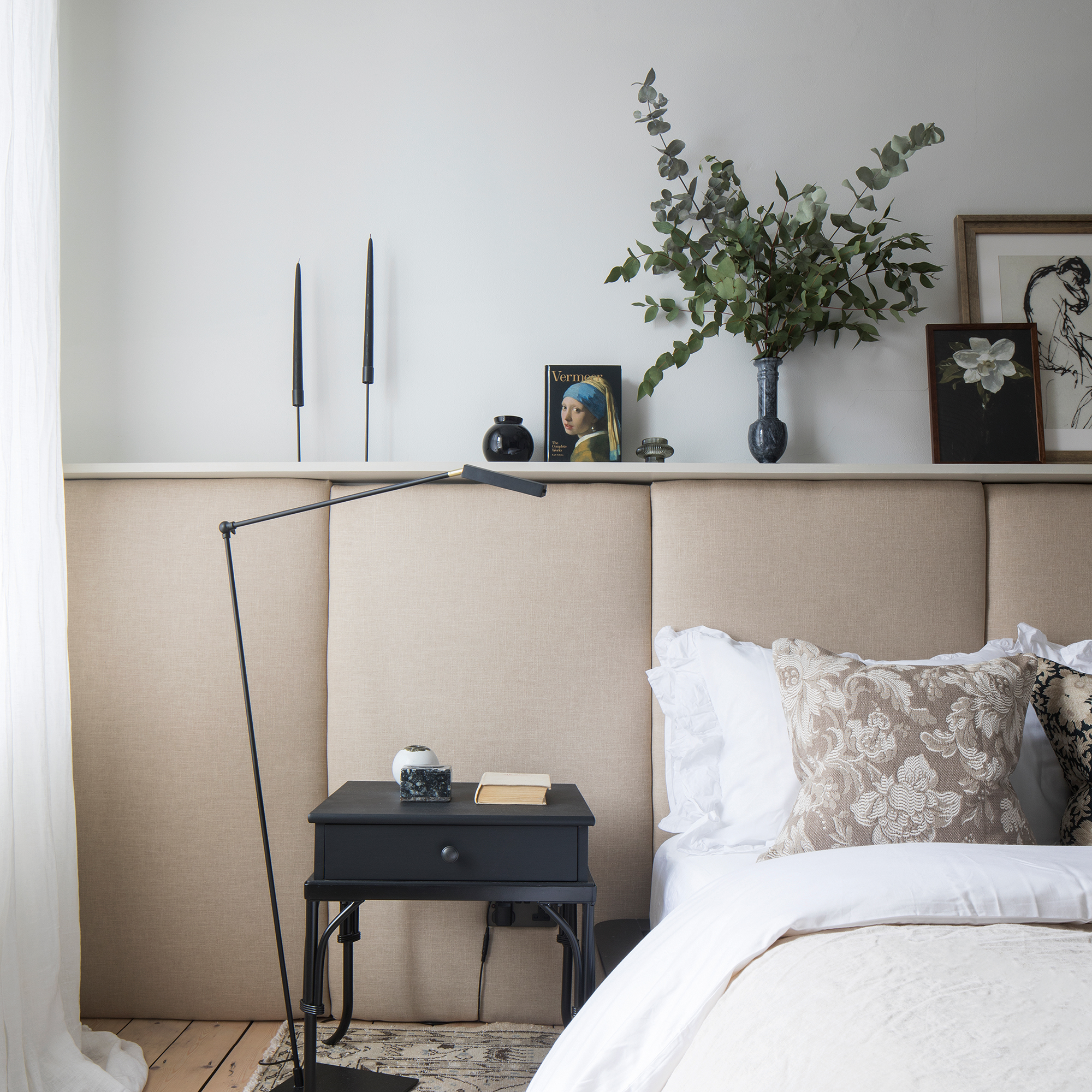
'It’s really important to have a regular opportunity to sleep that doesn’t really change every single day,' explains Stephanie Romiszewski, sleep physiologist and founder of Re:sleep.

Stephanie has spent many years diagnosing and treating a variety of sleep disorders, and now specialises in insomnia and complex sleep disorders. She has set up various pilot insomnia services for NHS services, founded Sleepyhead Clinic (a sleep treatment centre for patients), and most recently developed an online platform, re:sleep, to bring accessible but personalised sleep coaching to even more people.
Stephanie goes on to explain that adhering to a sleep schedule doesn’t mean, for example, that you have to go to bed at 10pm and you have to wake up at 6am.
Instead, it means that you know what hours you need on average (it doesn’t have to be the same every night), and that you give yourself the opportunity to have that amount of hours in bed if you need it.
Get the Ideal Home Newsletter
Sign up to our newsletter for style and decor inspiration, house makeovers, project advice and more.
'These hours should always start and end at the same time,' she says. 'So, while you don’t necessarily have to go to bed at 10pm and wake up at 6am, you know that time slot is always there if your body needs it.'
What you should never do, Stephanie warns, 'is move away from that sleep schedule by going to bed earlier or staying in bed later'.
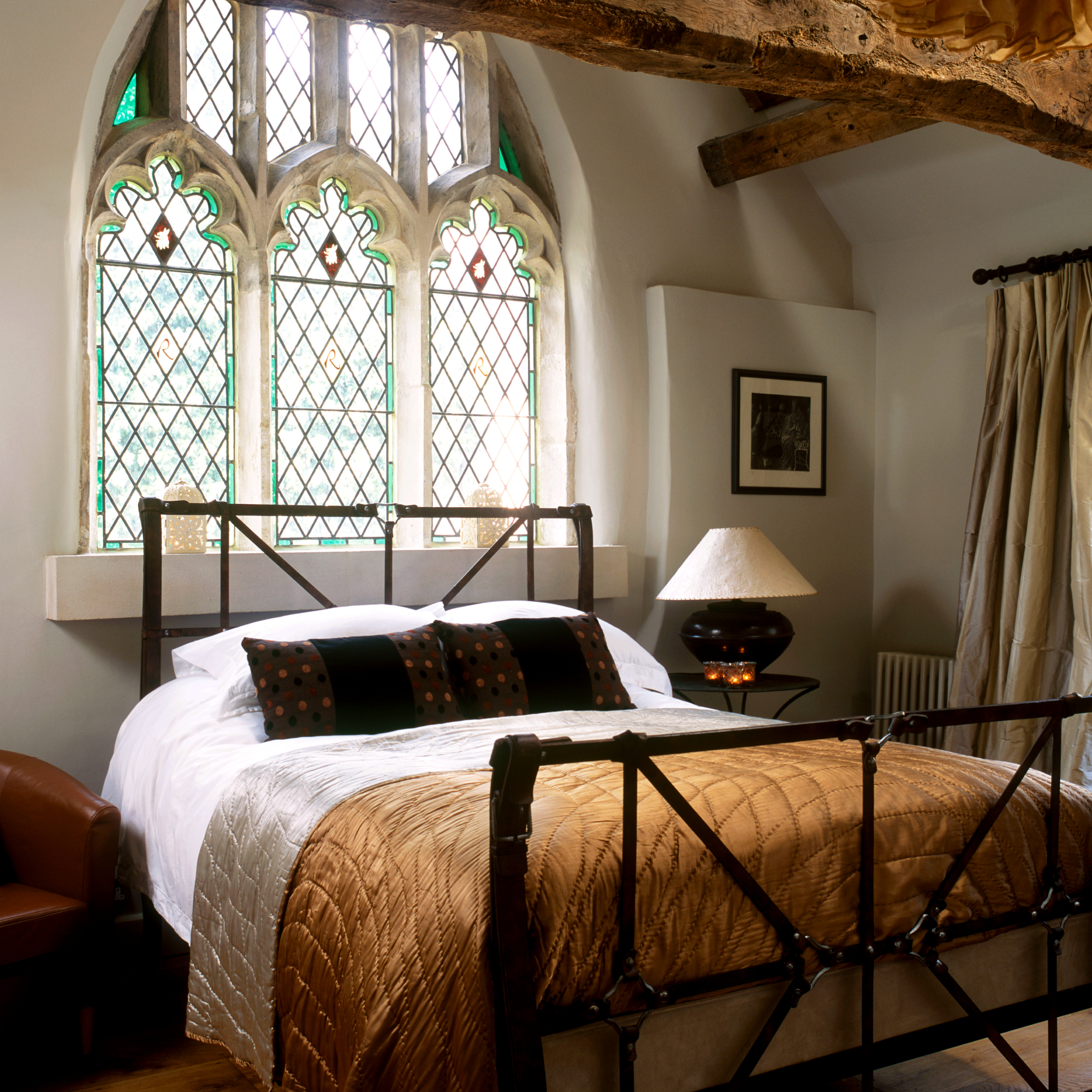
'As soon as we do those things, we end up moving away from our natural sleep wake cycles, and that’s when the body gets confused, and that’s when we start getting really broken sleep,' explains Stephanie.
'Having that consistent sleep schedule, or sleep opportunity, is incredibly important.'
10 expert tips to help you get your sleep schedule back on track
Of course, if you find that your sleep starts to change and that it starts to impact your life in a negative way, then you should take that as a sign you need to look into your sleep schedule and your sleep environment.
With that in mind, then...
1. Embrace the dark side

Two words: blackout blinds.
'If you are awake in the night and open your eyes and you can see, then it is too light; you need to get rid of the light anyway you can,' says Stephanie.
'We need to get that room as dark as possible. Even if you can sleep with the light on, it will impact the quality of your sleep by reducing melatonin, your sleepy hormone, and mucking everything up.'
Dr Nerina Ramlakhan agrees, noting: 'Blackout blinds can be helpful for keeping your room dark and cave-like, but perhaps think about leaving them very slightly open if you like waking up to some natural light.'

Dr Nerina, who completed her post-doctoral training and research into the effects of lifestyle interventions on the alleviation of mental disorders, regularly hosts sleep programmes and workshops. She is the bestselling author of four books about sleep, including Finding Inner Safety: The Key To Healing, Thriving, And Preventing Burnout.
And on that note...
2. Let in the light
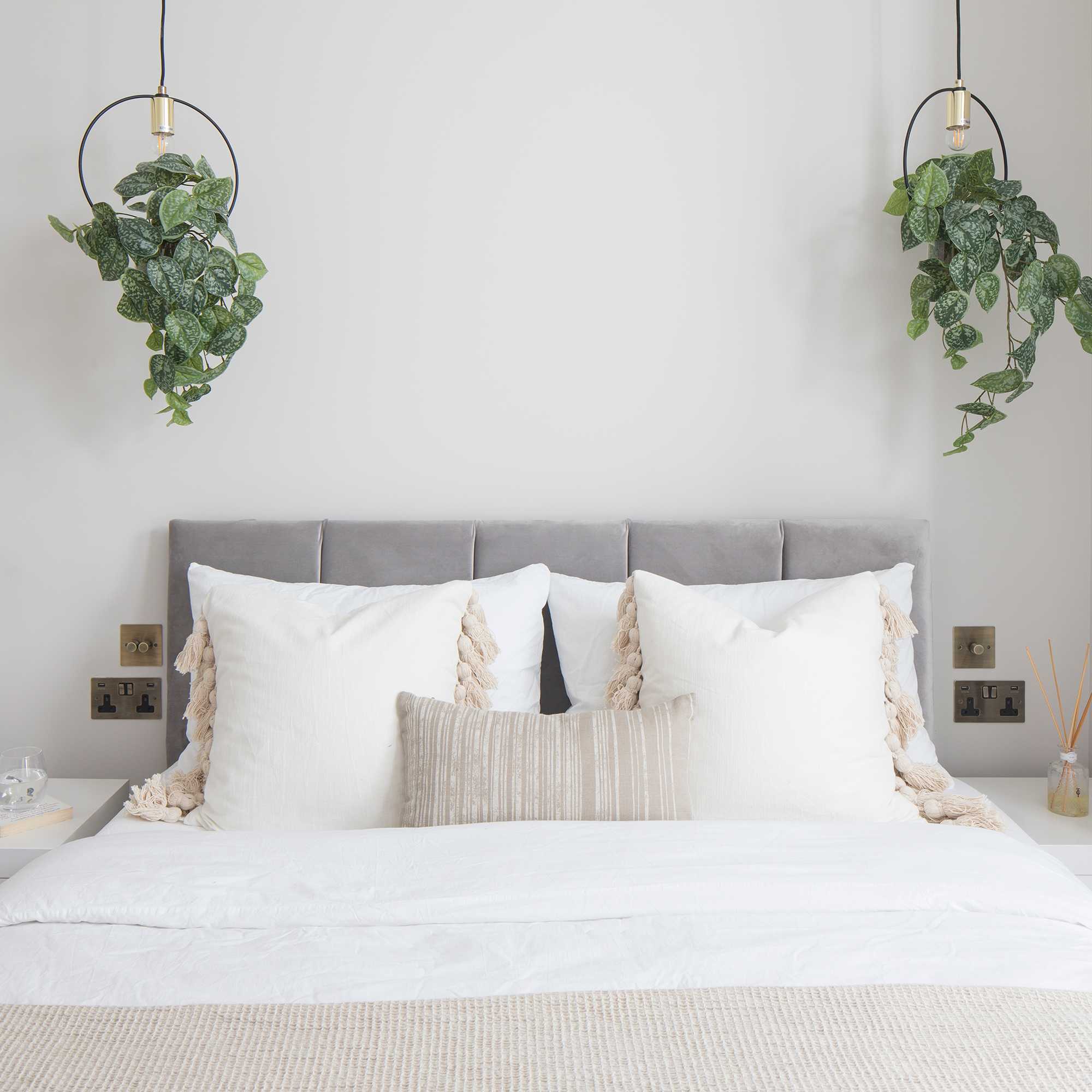
Exposure to sunlight helps to reset our body clock, so a good dose of light exposure in the mornings is key to getting our sleep schedules back on track.
'We need bright light in the mornings,' says Stephanie. 'So set your light alarm, open your curtains, and do whatever you can do to flood that light in.'
'Even just 10 minutes of natural light in the morning can set your circadian rhythm into a healthy pattern so that you sleep better at night,' adds Dr Nerina.
Try using one of the best sunlight alarm clocks: these 'have the ability to wake you in a lighter stage of sleep,' according to Stephanie, 'and so they're much nicer to get used to a regular get up time and especially in the winter.'
3. Keep a notebook and pen on your bedside table
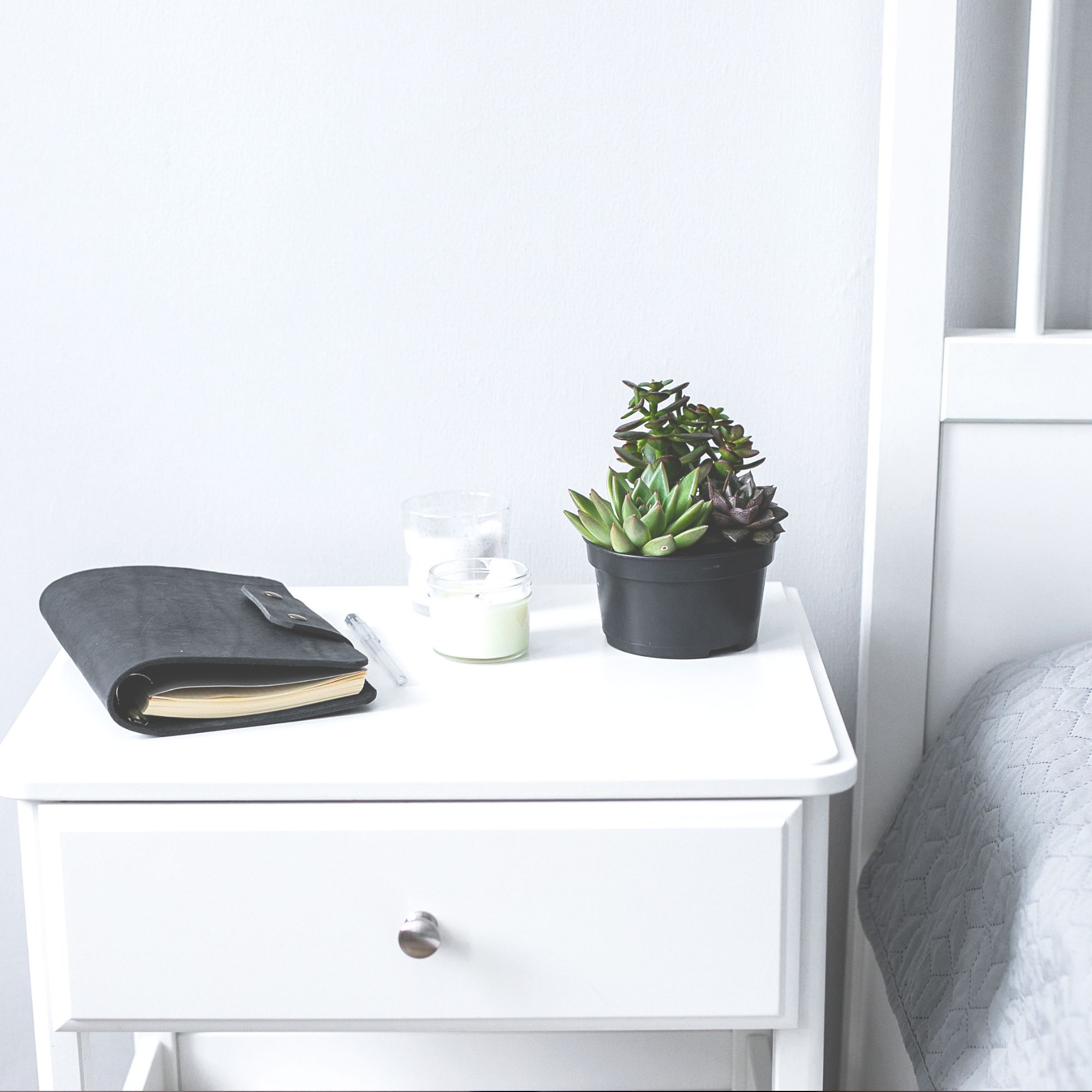
'Everyone – and particularly the sensitive sleeper or someone who is going through a period of sensitivity with their sleep – can benefit from making their sleep environment feel safer and more like a sanctuary,' says Dr Nerina.
To that end, the sleep expert advises keeping your room and bedside table clear and clean of clutter (try the Swedish Death Cleaning method, if you need help with this), and keep a notebook to hand so you can write down worries before bedtime rolls around.
'This will set you up for restorative sleep,' she says.
4. Set healthy technology boundaries
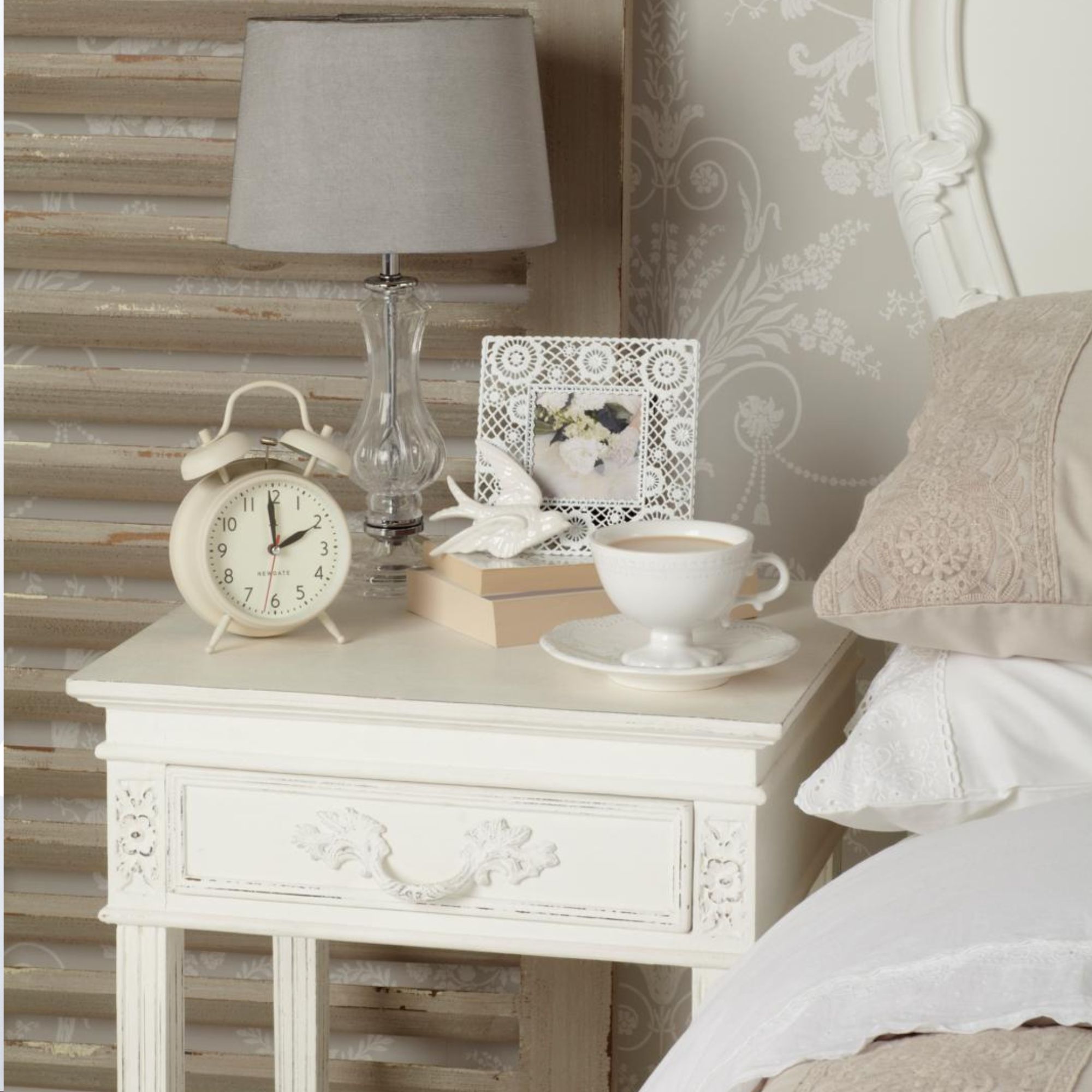
One of the easiest ways to get your sleep schedule back on track? Banish your phone from the bedroom (sorry not sorry).
'It's not just about the light here,' says Stephanie. 'In fact, the light on your screen is the least of my worries as a sleep expert: it's about the constant connectivity to the outside world. You need to wind down your brain.'
Dr Nerina also advocates ditching your phone and getting an old fashioned alarm clock instead. In fact, it's one of her non-negotiables when it comes to getting a better (and deeper) night's sleep.
'Late bedtimes are often related to technology and social media, with people staying up absorbed by the internet or the television,' she says.
'Your phone should not be the last or first thing you look at before your turn your light out or first thing when you wake up.'
5. Wake up at the same time every day

While we're on the subject of alarm clocks, it's very important to – if you're trying to figure out how to get your sleep schedule back on track, that is – set it for the same time every single day. Even on the weekend.
'There's absolutely nothing on this planet that can make you sleepy if you don't have a strong sleep drive,' says Stephanie.
'Your brain needs this starting point to start building sleep pressure, and if that keeps changing each day then you’re not going to have a consistent sleep drive which is exactly what gets you through the night.'
'Broken sleep at night can be helped by just this one rule,' she adds. 'It’s the most influential one.'
6. Don't skip breakfast
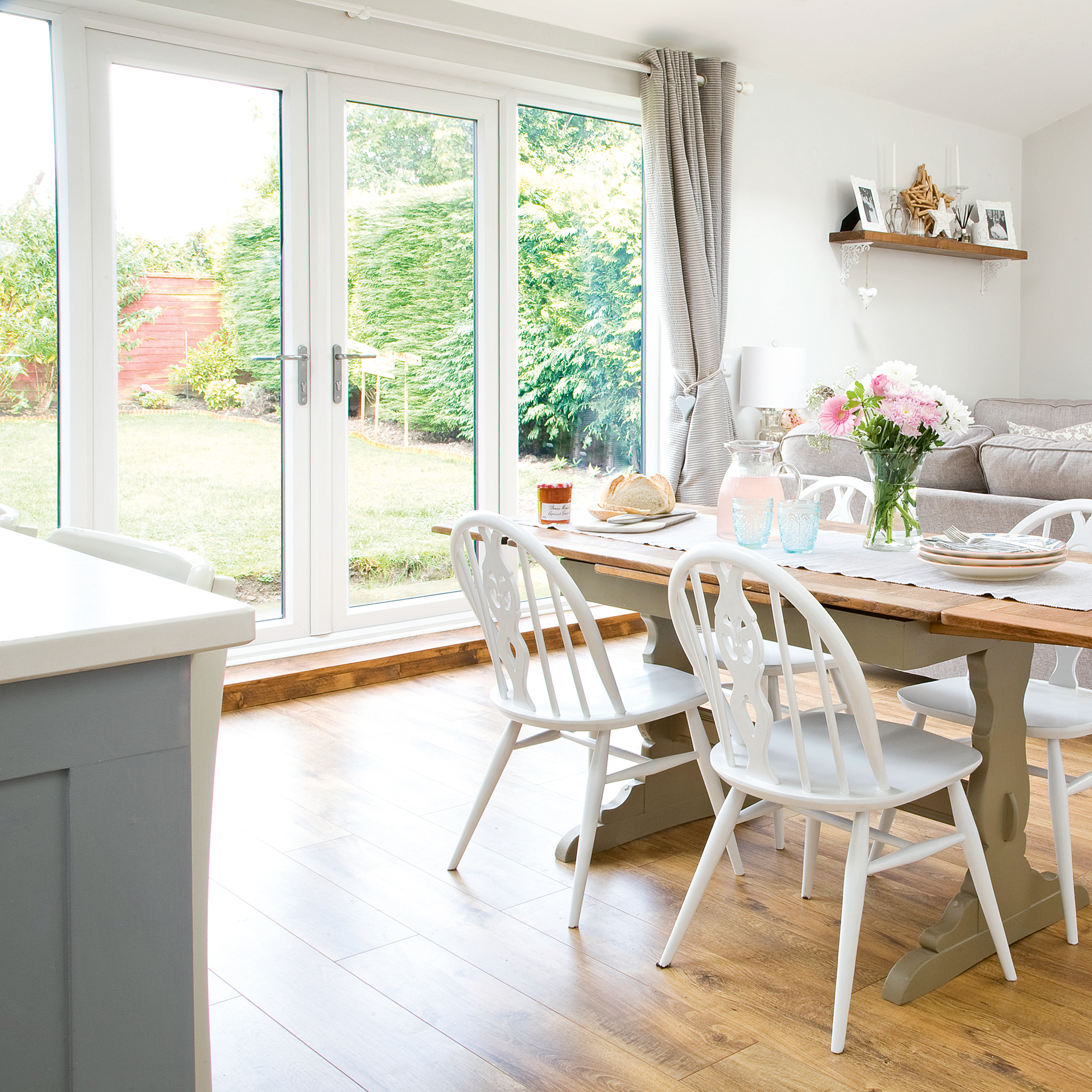
It might be time to invest in one of the best air fryers or best slow cookers if you haven't already, as both will make it easier to get breakfast ready in the mornings.
'Not only is the most important meal of the day, vital for energy and concentration, but breakfast can affect your sleep too,' says Dr Nerina.
If you're wondering how to get your sleep schedule back on track, Dr Nerina recommends 'eating within the first half-hour of rising, so you can stabilise your blood sugar levels.'
Doing so, she says, will enhance your body's ability to produce the hormone melatonin, which is needed for sleep later in the day.
7. Figure out your optimum bedtime temperature

Oh yes, we know that the best room temperature for sleep is approximately 18.3°C – if you ask The Sleep Foundation, that is, so set your smart heating accordingly. However, if you're wondering how to get your sleep schedule back on track, things get more personal.
'The reality is, if you're too cold, you're not going to sleep for you,' says Stephanie simply. 'And if you're too hot for you, you're not going to sleep either. So you need to really be mindful here and and lots of things come into this.'
Consider airflow in the room, the tog rating on your duvet, and whether or not your share a bed with someone. And, if you're not waking up too hot or too cold, then don't worry too much about what the thermostat says.
'If it's not broken, don't fix it!' adds Stephanie.
8. Embrace white noise
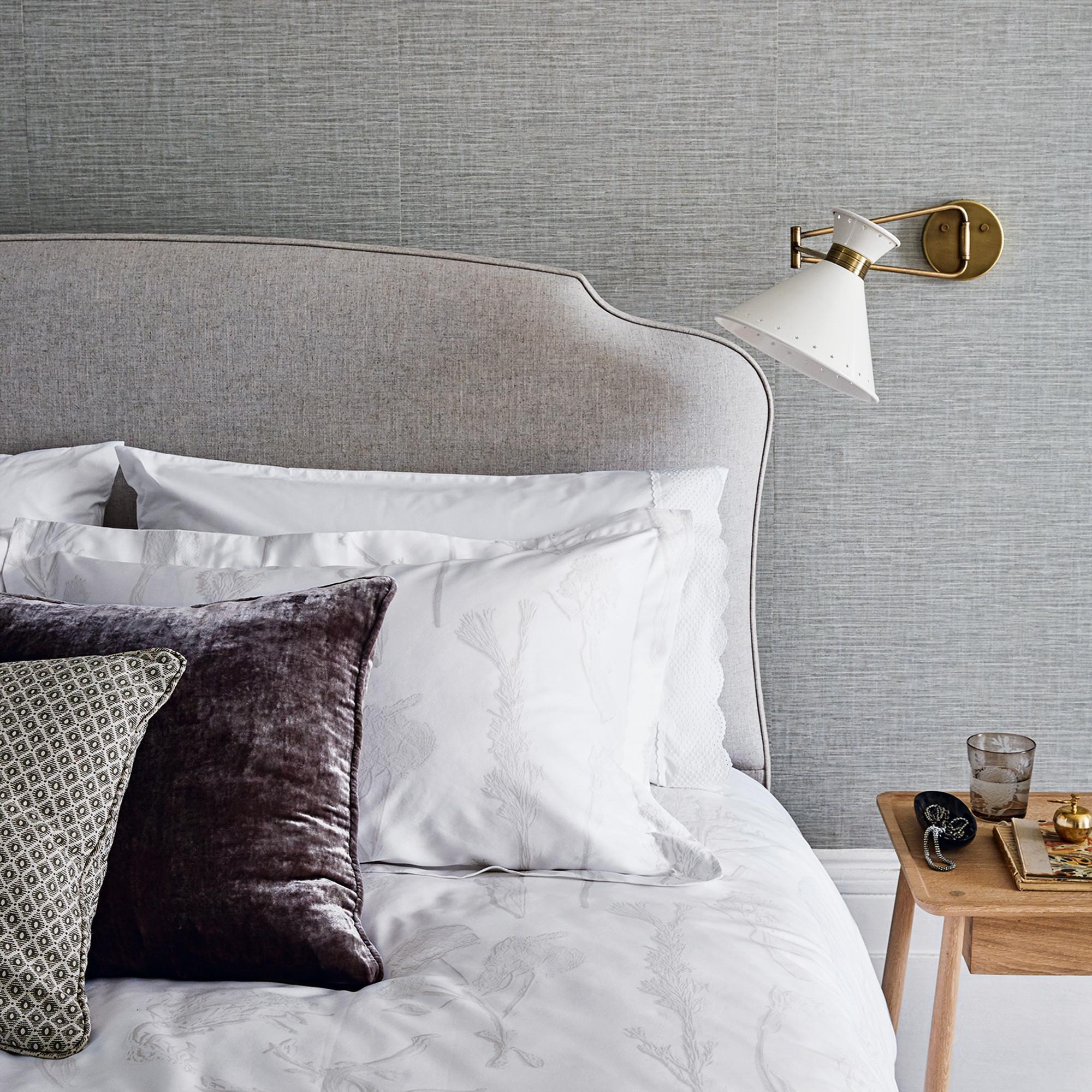
White noise – whether from a noise machine or from one of the best fans – can stop external noises intruding and help you get your sleep schedule back on track, according to Dr Nerina.
Stephanie agrees, noting that she herself listens to the sound of rainfall at bedtime.
'Rain noises are one of my favourite things,' she says. 'And I will put [my white noise machine] on a little 10 minute timer. It really relaxes me and makes me go to sleep and I don't have to do anything. It does it automatically!'
If you don't have a white noise machine, try listening to an episode of Spotify's Relaxing White Noise Podcast via one of the best smart speakers available.
9. Create a sleep sanctuary

Still wondering how to get your sleep schedule back on track? Dr Nerina advises paying attention to sights, sounds and smells which affect the nervous system, taking it into a state of balance or imbalance.
'Give some thought to colours and textures, choosing fabrics that soothe and enable you to rest,' she suggests (remember: wool, linen, silk, and cotton are the four most recommended textiles for sleep).
'You can also use smells that enhance rest; aromatherapy oils such as lavender, ylang ylang and eucalyptus can be helpful.'
Check out our tips on how to make your rooms smell good if you need a few more ideas.
10. Don't wait until the evening to wind yourself down
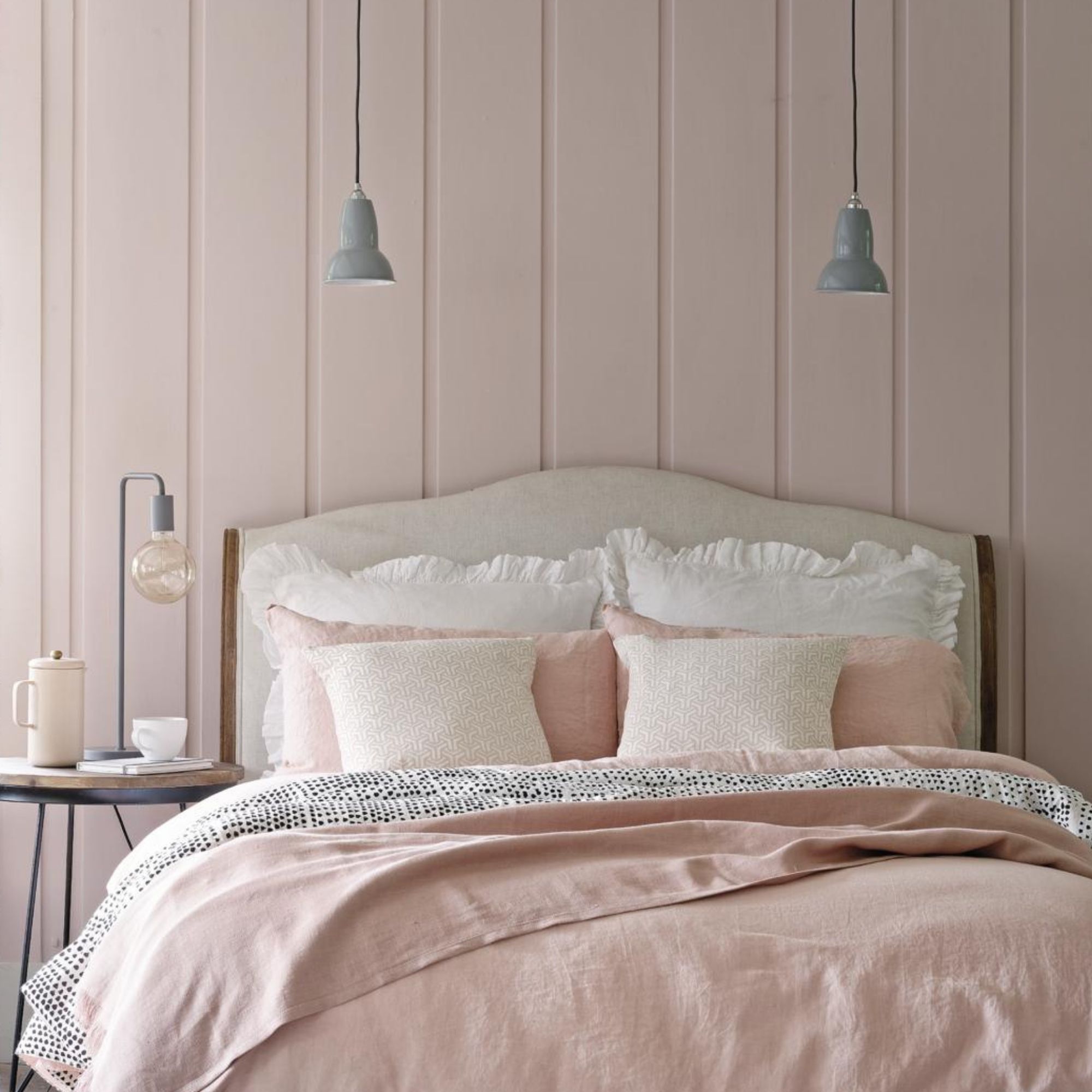
When it comes to sussing out how to get your sleep schedule on track, you might think that it's all down to giving yourself 30 minutes to wind down before bed. Not so, says Stephanie.
'Try thinking about what you could do every couple of hours during the day that can bring you back to balance, even if it's just looking up at the sky and watching the birds or a breathing exercise,' she says.
'It's really important that you give your body time to process everything before you ask your sleep to do it.'
Rather than obsess over creating the perfect bedtime routine, then, Stephanie advises you save the evening for 'doing stuff that you enjoy and that makes you feel content'.
'I'm not going to tell you what those things are, because relaxing means something different to every single person and it is not up to me,' she says. 'Just remember that you can't expect your body to make you sleepy because you do something nice before you go to bed!'
11. Create a bedroom you love
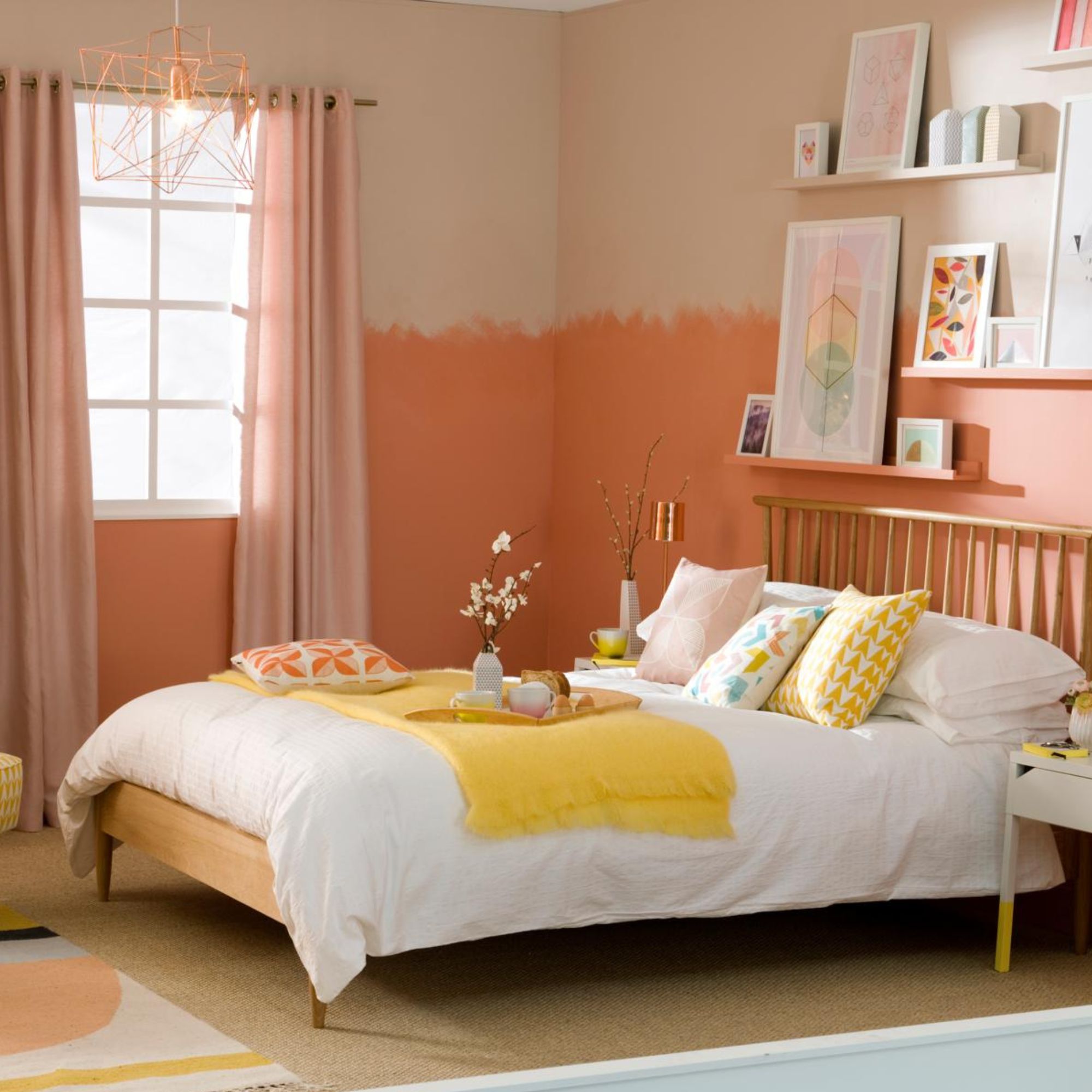
If you don't love your bedroom yet, it's definitely worth checking out the top bedroom ideas around and creating your own sleep sanctuary.
'It is not trite to say that your bedroom should feel like a sanctuary, especially if you are a sensitive sleeper,' says Dr Nerina.
'In over 25 years of helping people to sleep I have identified the person who is particularly sensitive to their sleep environment: they need their bedroom to look and feel a certain way in order for them to feel safe to sleep. They may not even realise that this is the case until they are away from their usual sleep space, such as a hotel, and then they realise that they can't sleep!'
With this in mind, Dr Nerina urges sensitive sleepers to keep their bedtime environment consistent.
'You need your side of the bed, your own pillows and duvet... in some cases, even a change in laundry detergent can be disruptive to your sleep,' she says.
Figure out what you need to get a good night's sleep, and recreate that vibe accordingly each night.
12. And save your bed for sleep
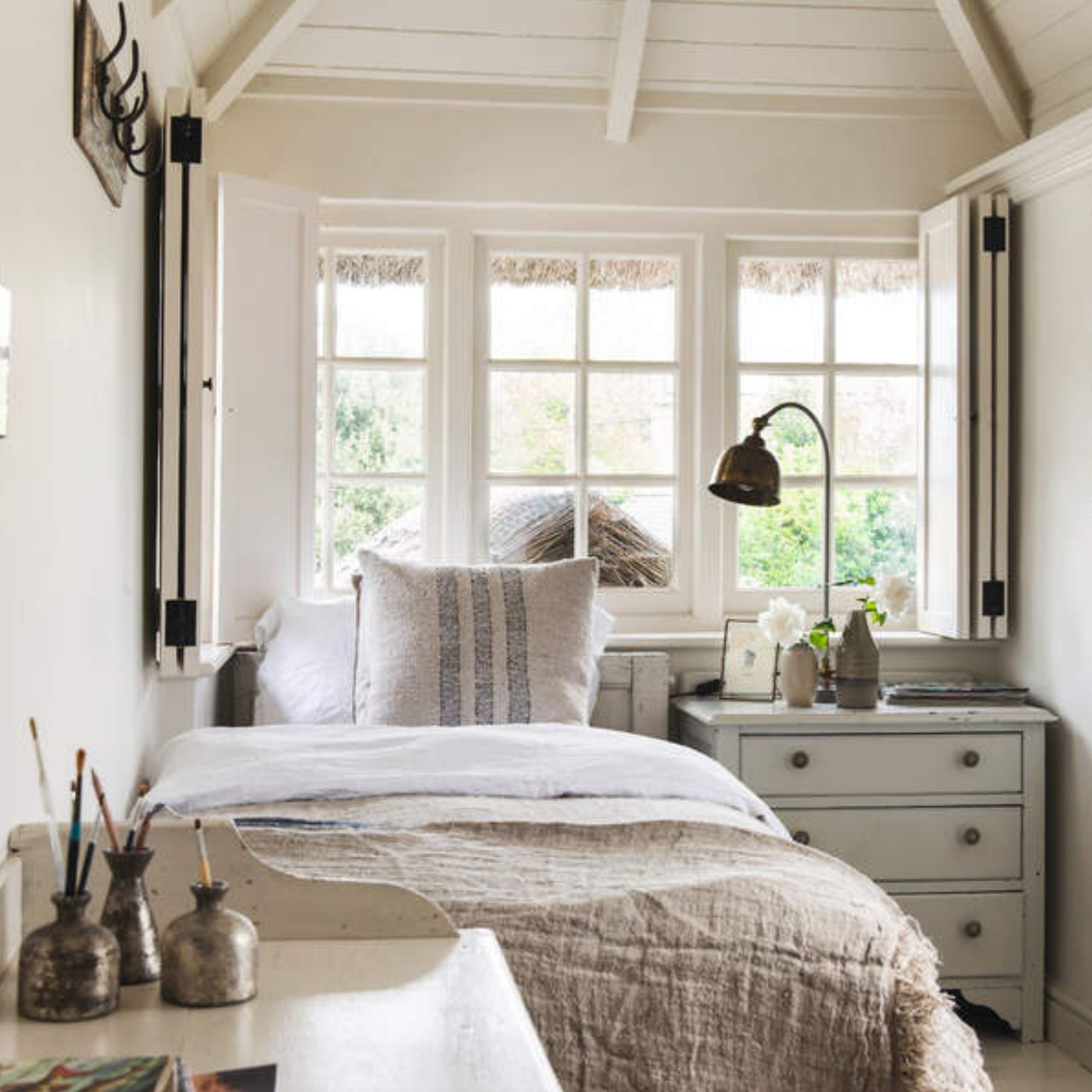
You can help get your sleep schedule back on track by teaching yourself that your bed is for sleep – and that means no eating, working, or watching TV from the comfort of your pillow.
'Make sure the space you’re sleeping in is left for sleep alone,' says Stephanie. 'Apart from sex, of course, which is very good for sleep.'
And on that note...
What is the normal human sleep schedule?
'There are plenty of different sleep patterns and it’s actually not that helpful to say one is better than another because the reality is: if it’s not broken, don’t fix it,' says Stephanie.
'Depending on your lifestyle and what you get up to, you will have to do things slightly differently from the next person, and that’s why all over the rold, people sleep differently, from those who have siestas to sailors who have to do fours hours on, four hours off!'
Is it okay to sleep at 4 am and wake up at 12pm?
'It might be tempting to stay up and watch that extra episode on Netflix, but this can throw your sleep pattern completely out of whack,' says Dr Nerina.
'If you can, try and aim to be in bed between 9:30pm and 10pm. You don't necessarily have to be sleeping, but resting or doing something that is restful such as reading a book (not on your phone! The bright light and light exposure causes more sleep problems), listening to soothing music, meditating, or writing a gratitude journal.'
'You can even focus on deep breathing to slowly start preparing your body for sleep,' she adds.
What does a good sleep schedule look like?
'A good sleep schedule is one where you are fairly consistent with what is happening,' says Stephanie, urging people not to worry too much about the "perfect" bedtime routines they see on social media.
'If you're waking up feeling refreshed and everything's good, then you're absolutely fine. But if you start having things happen that aren't making you feel good, that you know are having an impact on your daytime, and they are happening for more than a few weeks (because obviously it is normal to have broken sleep when our hormones change, when we go through stress, when we are put on a medication, or when we go through some kind of massive life event).'
'The best thing is just to think "OK, is this normal for me? How long has this been going on for? Is there any reason why this is happening?"' she adds.
How do I get my sleep schedule back on track?
Dr Nerina's 5 non-negotiables for deeper, better sleep are as follows:
1. Don't skip breakfast: make sure you're eating within the first half-hour of rising, so you can stabilise your blood sugar levels.
2. Cut back on caffeine: avoiding caffeine after 4pm can hugely enhance your sleep and help you sleep deeply.
3. Stay well-hydrated: not only do you lose water throughout the night but being well hydrated can help reduce awakenings and disruptions caused by dehydration, such as a dry mouth and leg cramps.
4. Aim to rest at nighttime: three of four nights a week, you should aim to be in bed between 9:30pm and 10pm.
5. Set healthy technology boundaries: the blue light from devices impacts the sleep cycle.
Stephanie, meanwhile, advocates a very simple means of helping you get your sleep schedule back on track: get out of bed at the same time each morning, get some light exposure, and do some exercise in the morning.
'These three things are so important for starting that circadian cycle,' she says.
How long does it take to get your sleep schedule back on track?
'Just 7 days of using my 5 non-negotiable sleep rules can produce dramatic results in the quality of sleep and energy levels,' says Dr Nerina.
Stephanie, meanwhile, says: 'Even if your expectations are not being met by your sleep right now, you should marvel at how adaptive your sleep is. And actually, you don't need to worry about your sleep, because your sleep is going to correct itself.'
Just be sure to give yourself a regular sleep opportunity, she adds, and your sleep schedule should right itself before too long.

Kayleigh Dray became Ideal Home’s Acting Content Editor in the spring of 2023, and is very excited to get to work. She joins the team after a decade-long career working as a journalist and editor across a number of leading lifestyle brands, both in-house and as a freelancer.
-
 I tried out this neat little dehumidifier for a month – it dried my laundry in half the time
I tried out this neat little dehumidifier for a month – it dried my laundry in half the timeThe 20L SmartAir Dry Zone dehumidifier tackled my laundry drying woes head on
By Jenny McFarlane
-
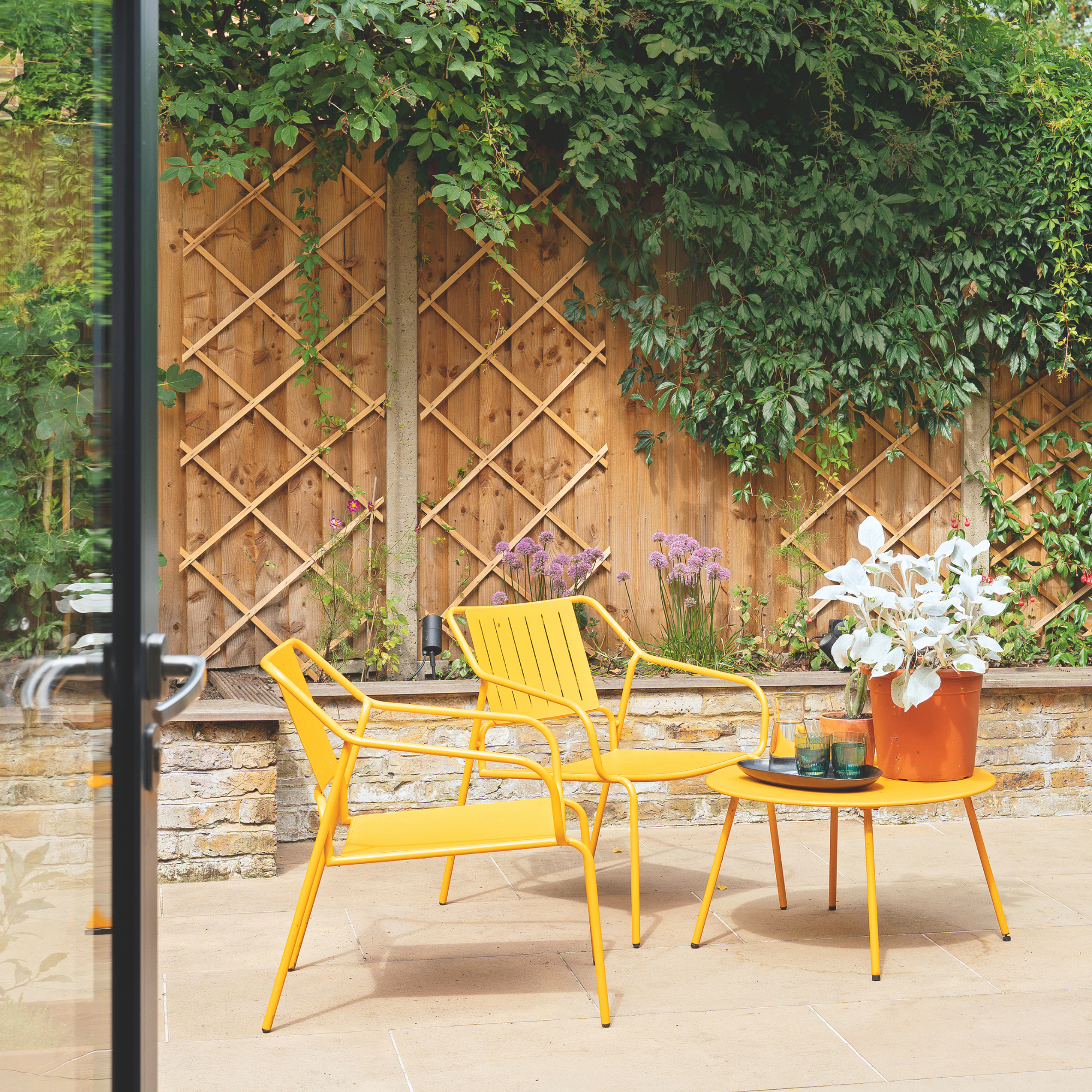 I’m seeing pastel garden furniture at all my favourite brands this spring, but QVC’s sorbet collection impressed me the most
I’m seeing pastel garden furniture at all my favourite brands this spring, but QVC’s sorbet collection impressed me the mostFresh pastel shades are a great way to liven up your outdoor space
By Kezia Reynolds
-
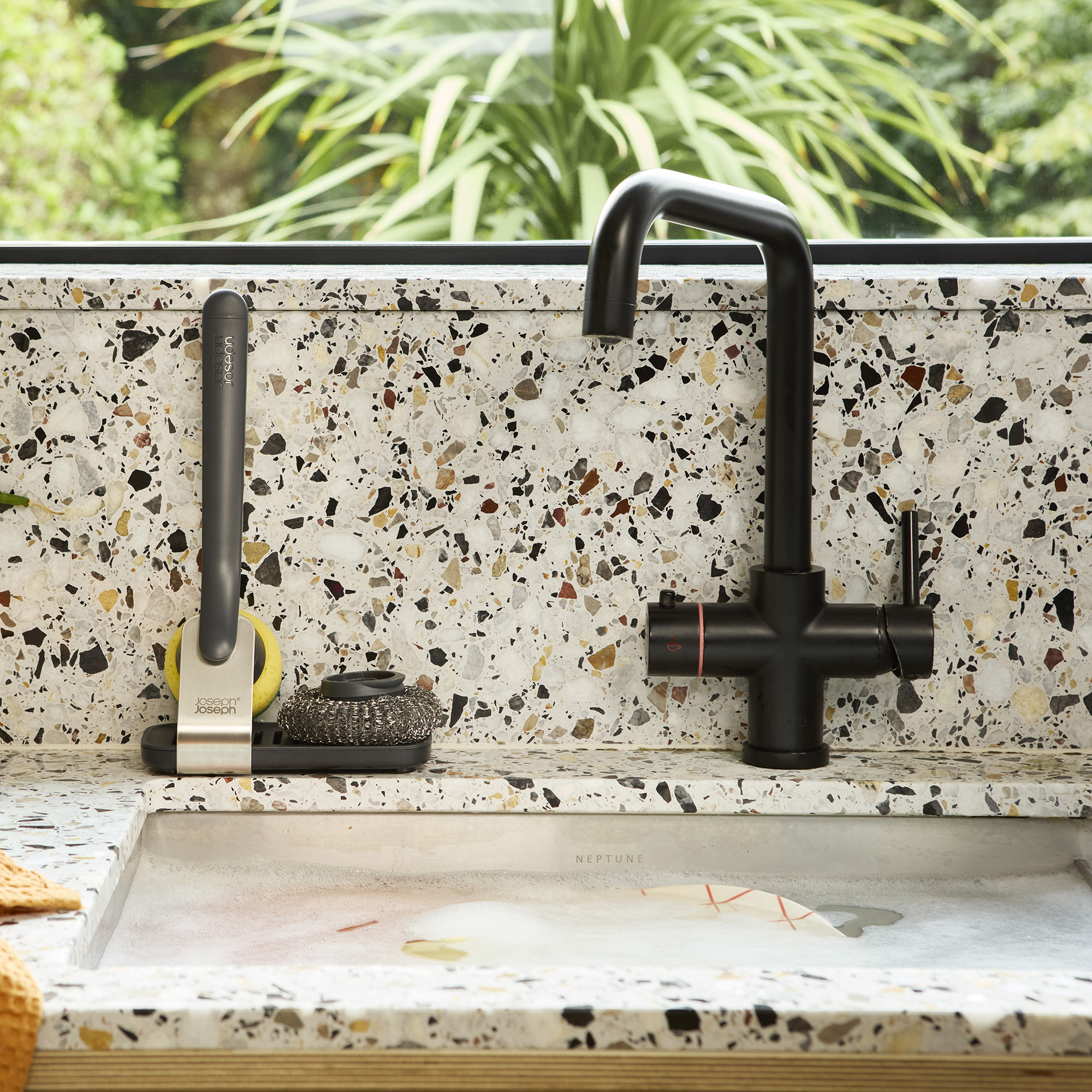 Don't tell my flatmates, but Joseph Joseph's clever new sink range finally made me enjoy washing up
Don't tell my flatmates, but Joseph Joseph's clever new sink range finally made me enjoy washing upI didn't know stylish washing up accessories existed until I saw this collection
By Holly Cockburn
-
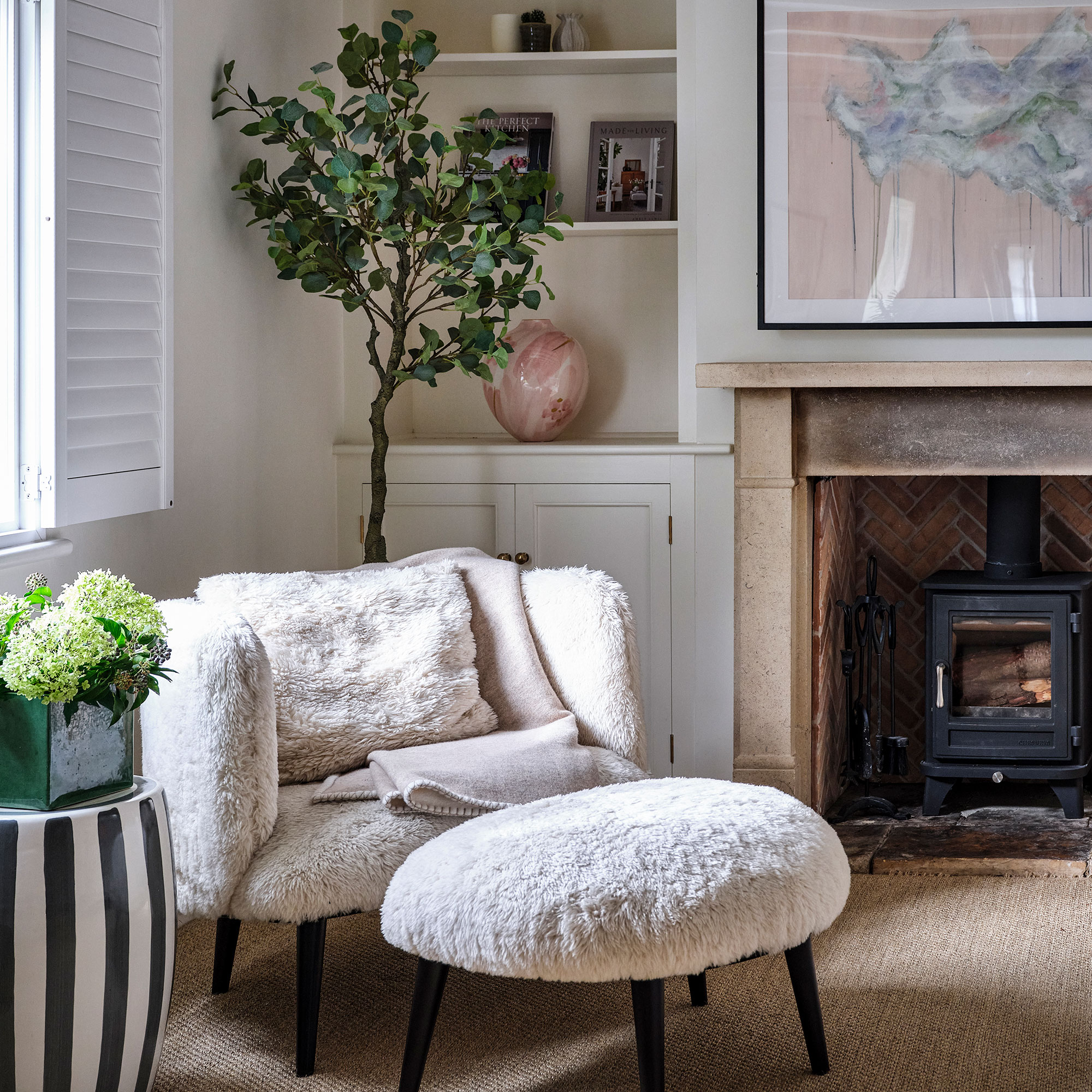 Hygge living room ideas — 6 ways to warm up your home with this Danish concept and cosy aesthetic
Hygge living room ideas — 6 ways to warm up your home with this Danish concept and cosy aestheticHunker down until summer finally arrives with these warming ideas
By Rebecca Knight
-
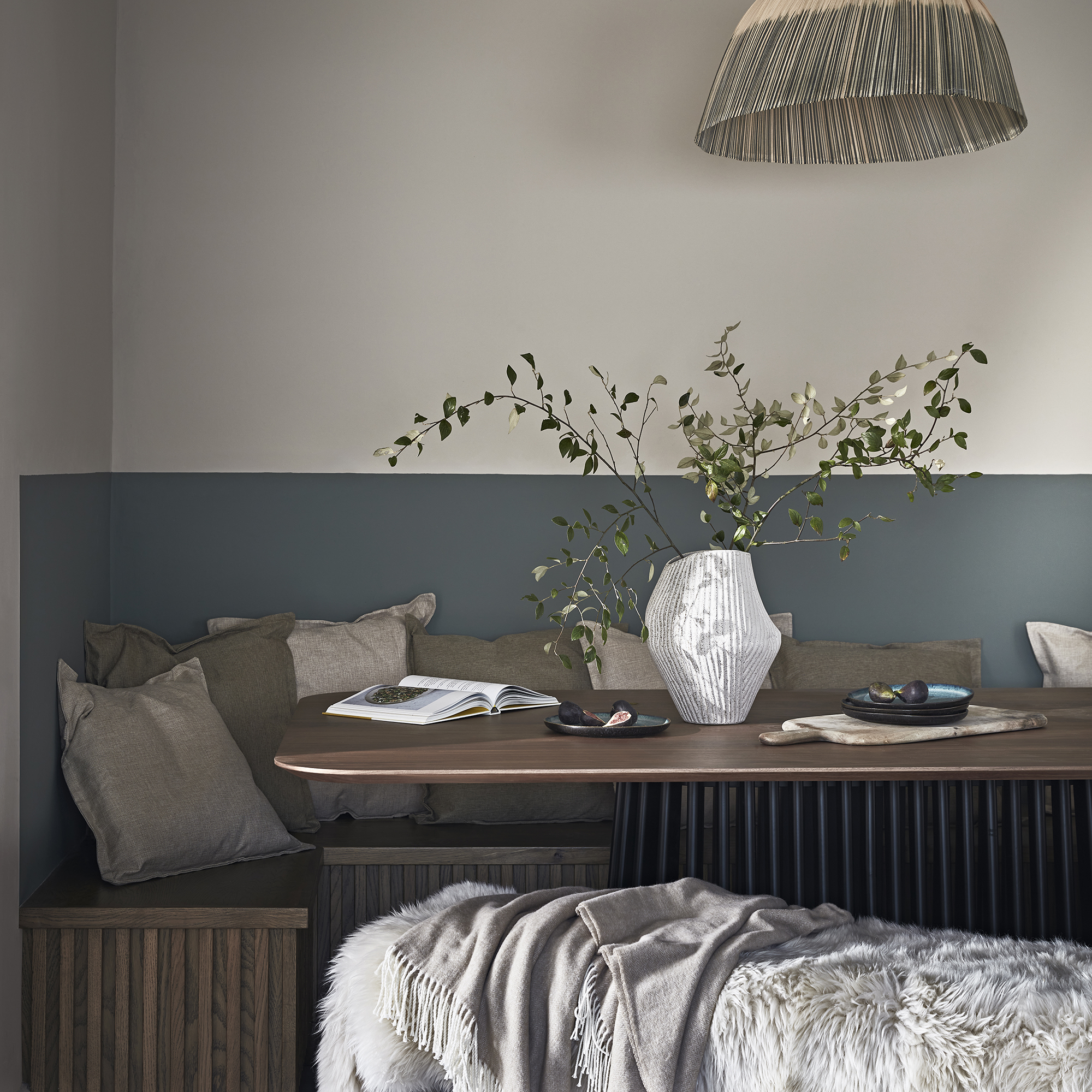
 How to create a sensory home – interiors experts reveal 5 easy ways to style your home and soothe your mind
How to create a sensory home – interiors experts reveal 5 easy ways to style your home and soothe your mindYou can turn any space into a sanctuary by following these simple steps
By Maddie Balcombe
-
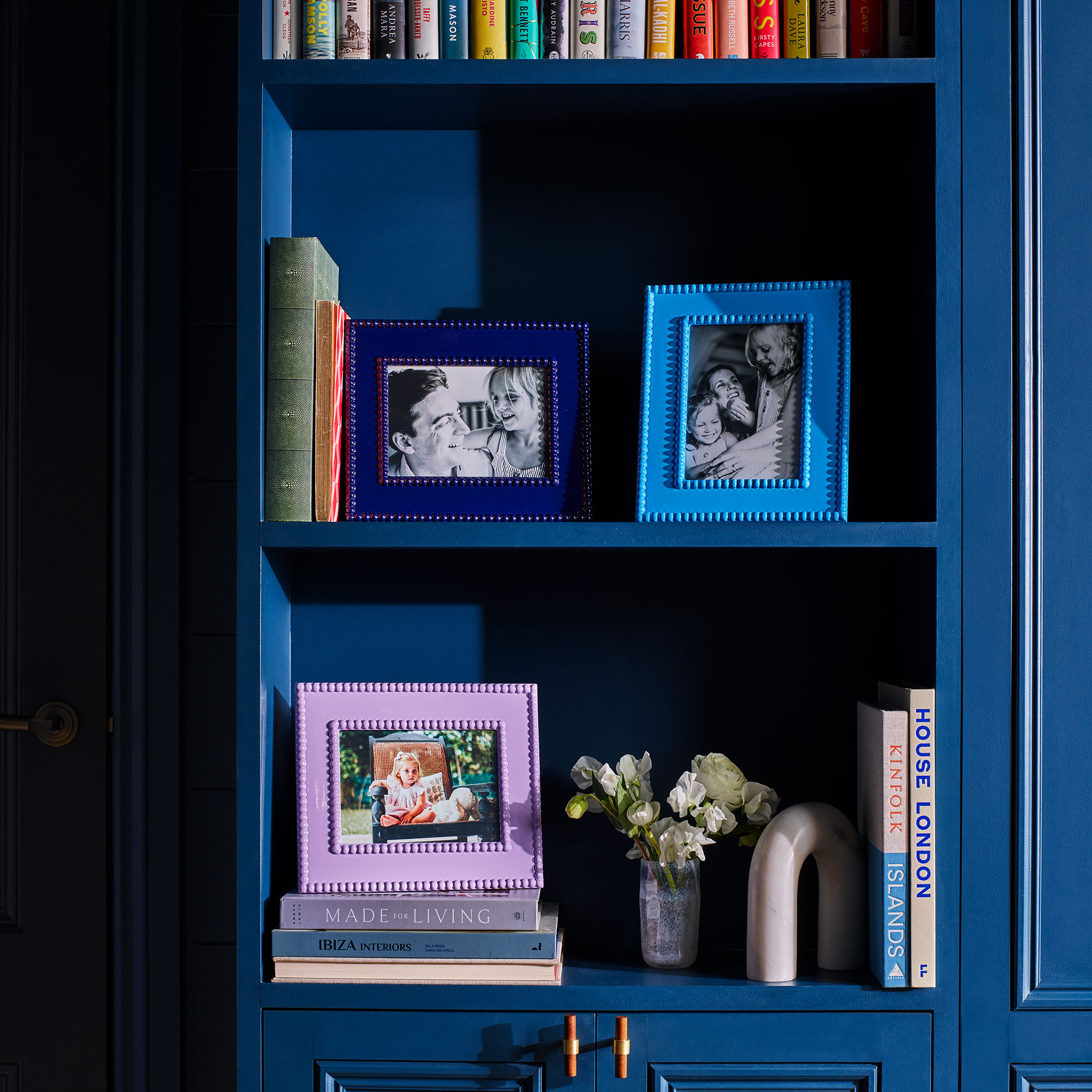
 Can displaying family photos at home make you happier? According to research it can — 5 ways to do it in style
Can displaying family photos at home make you happier? According to research it can — 5 ways to do it in styleHarness the mood-boosting power of looking through old photos by displaying your favourites
By Rebecca Knight
-
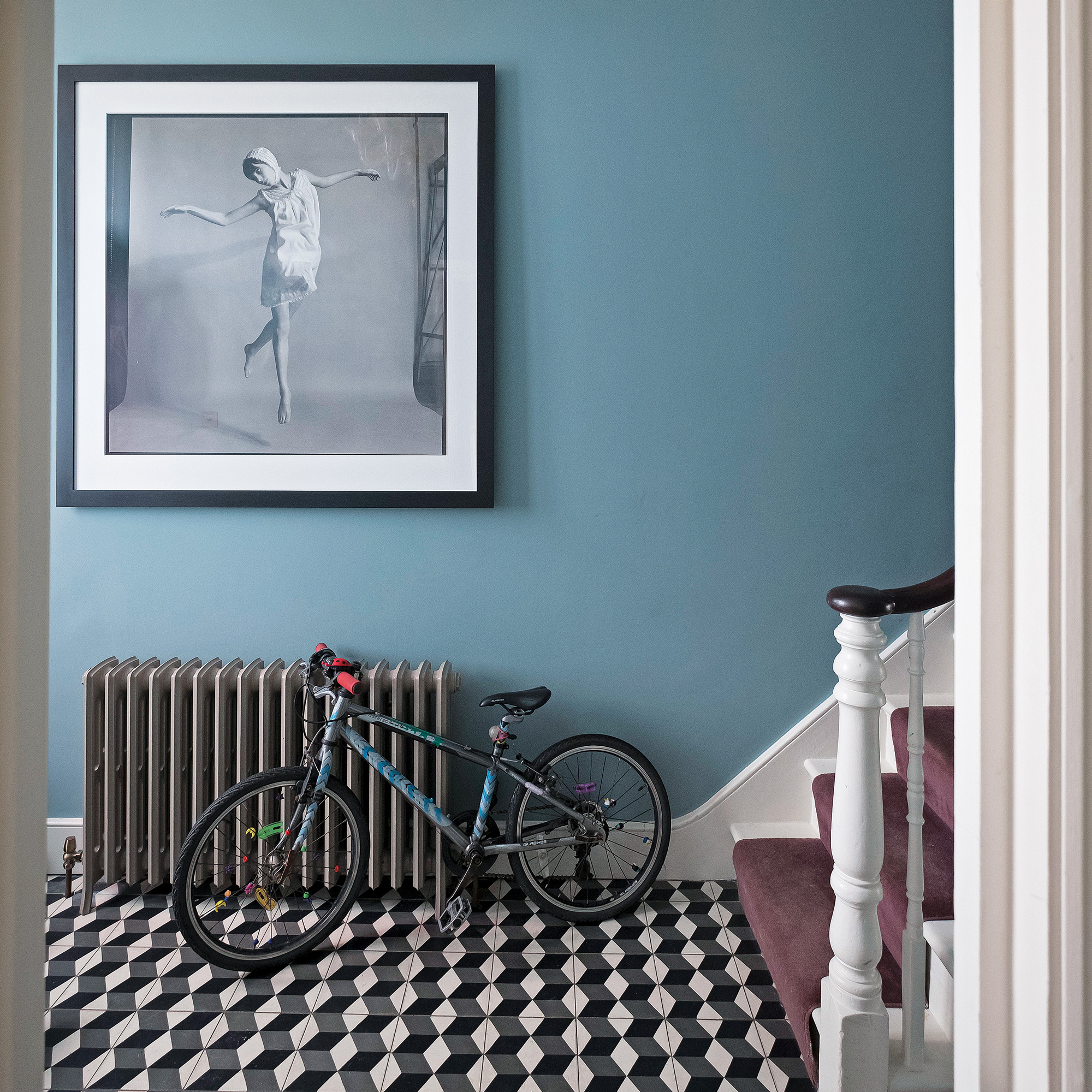 How to make a hallway smell incredible without candles - 7 ways to gently fragrance your entranceway
How to make a hallway smell incredible without candles - 7 ways to gently fragrance your entrancewayGo flame-free to safely scent your entryway
By Vanessa Richmond
-
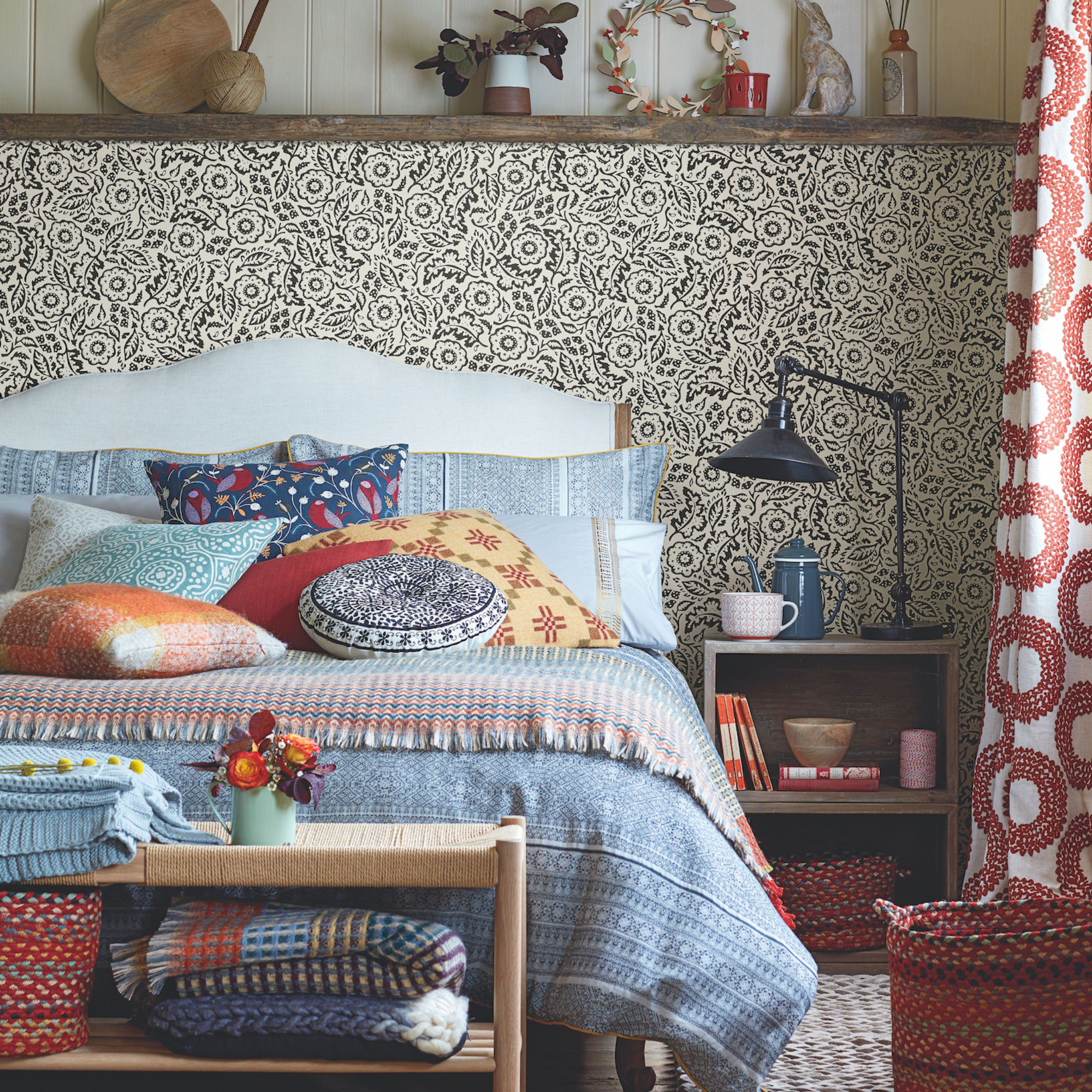 6 ways I brighten my home in January when the Christmas decorations come down, as an interior stylist
6 ways I brighten my home in January when the Christmas decorations come down, as an interior stylistHelp banish the winter gloom with these uplifting ideas
By Laurie Davidson
-
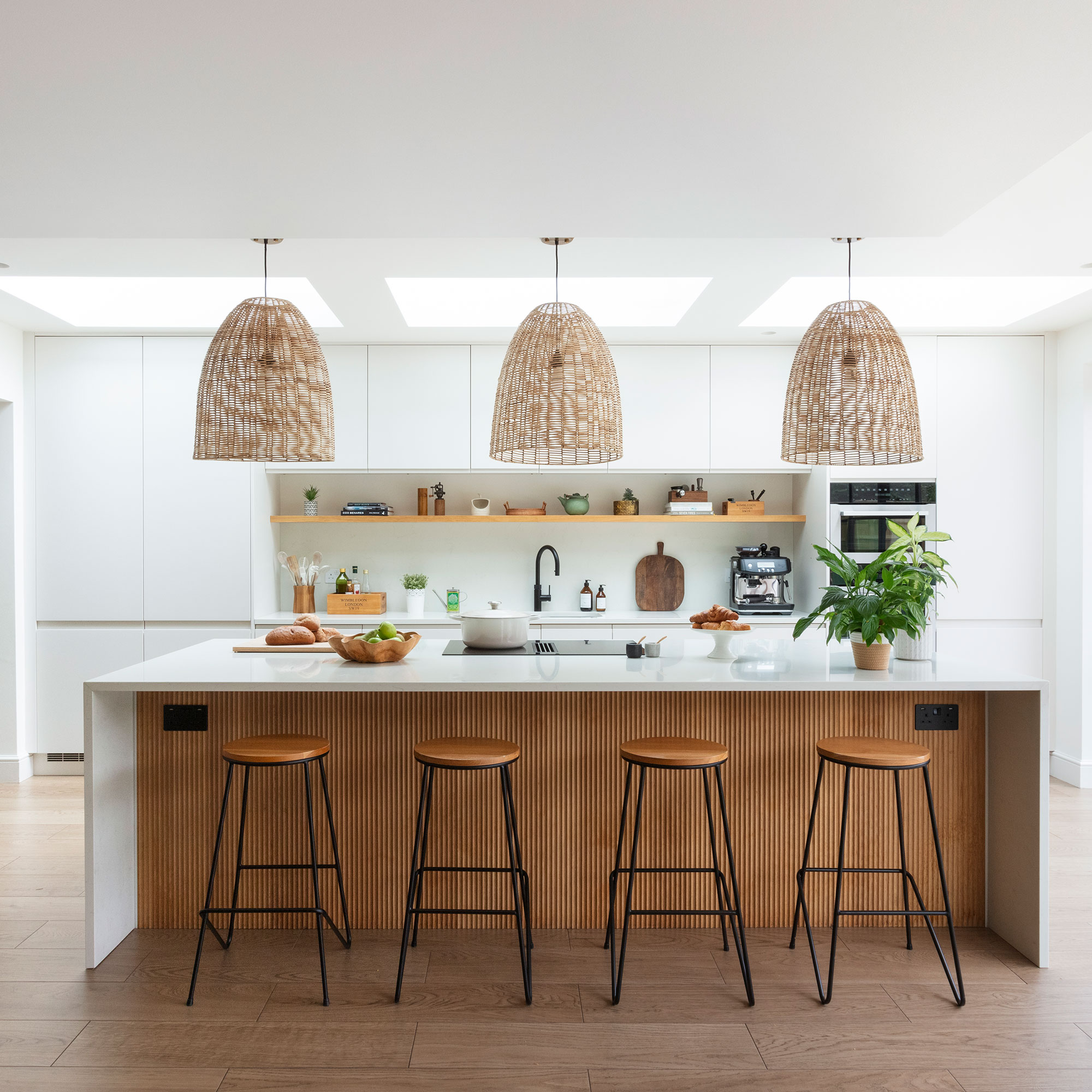 Kitchen hacks to encourage healthy eating habits — 7 ways your kitchen can support healthy living
Kitchen hacks to encourage healthy eating habits — 7 ways your kitchen can support healthy livingMake creating healthy changes easy by following these tips
By Eilidh Williams
-
 How to reset your home after Christmas to restore a sense of calm
How to reset your home after Christmas to restore a sense of calmFollow these 7 steps to get back to normal at home and beat post-Christmas blues
By Eilidh Williams
-
 How to make a house look more inviting - 8 ways to quickly boost your house’s appeal in time for Christmas
How to make a house look more inviting - 8 ways to quickly boost your house’s appeal in time for ChristmasMake visitors feel welcome from the second they step foot on your property
By Vanessa Richmond